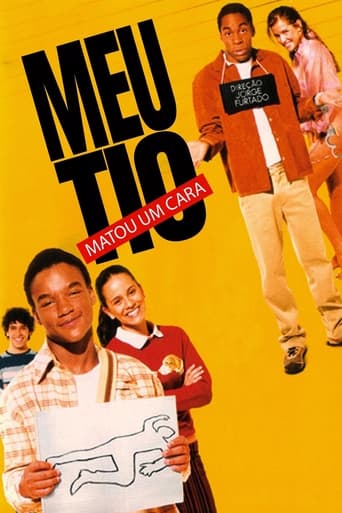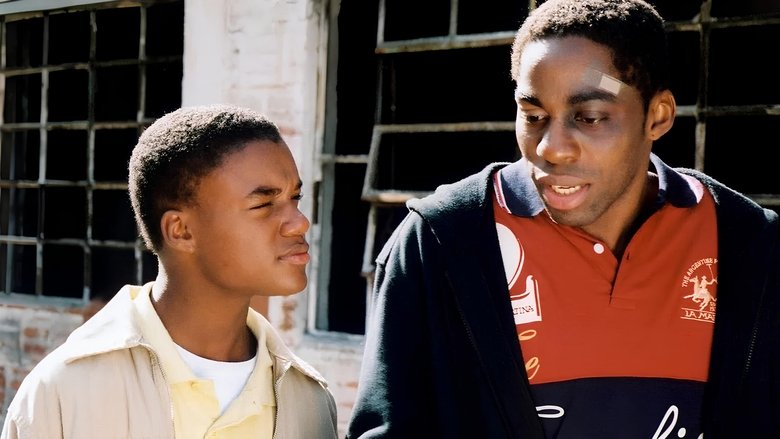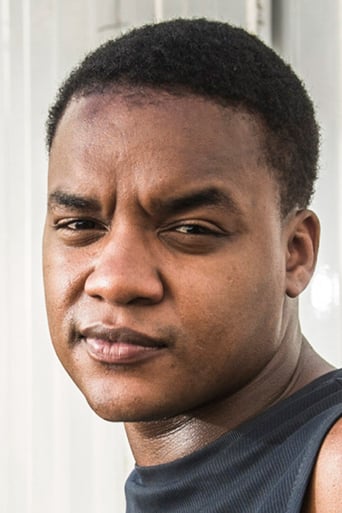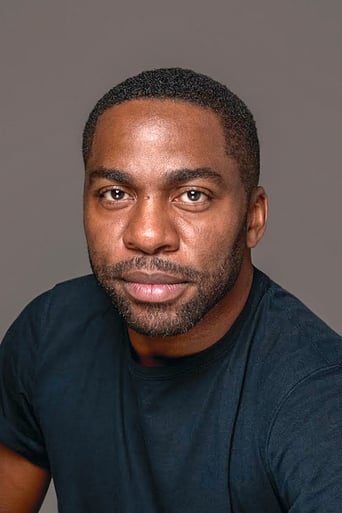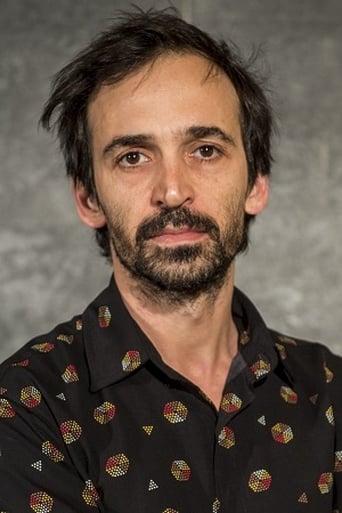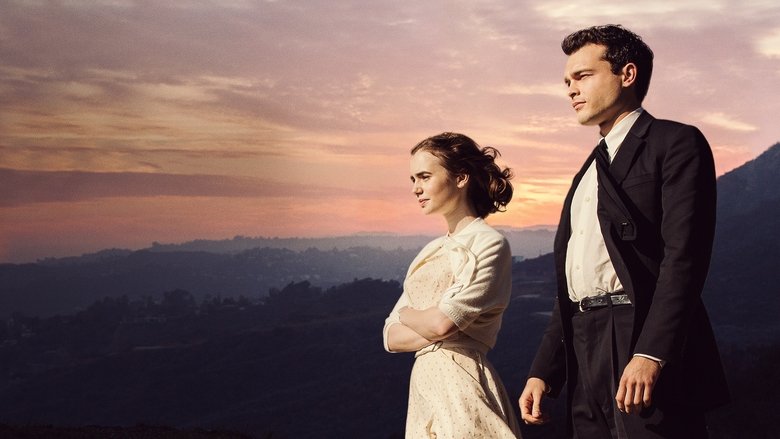Éder is arrested after confessing the murder of a man. Duca, his nephew, is sure that his uncle confessed the crime to protect his girlfriend, Soraya, ex-wife of the deceased, so he enlists two of his friends to help prove his theory.


Reviews
Narrative is the soul of a film, isn't it? Even when that near evidence is contested by the filmmaker, we seem to want to find a story wherever. Is that hardwired in our imagination? is it a cultural acquisition? It's meaningless. We do find stories, and that is important if we want to understand where most of our art comes from.Cinema is, so far, the ultimate narrative medium, the one where the deepest transformations have been invested, in terms of storytelling, narrative invention, etc. That's because cinema is a conglomerate of other activities, with millenniums of existence, plus the power of moving image, something always wished, but never achieved until cinema appeared (some cave paintings already tried to replicate movement!).So, if you are serious in seeing films, and understanding the medium, you have to wonder about how the story of storytelling evolved. Some names are fundamental. Others not so much. Jorge Furtado is one of this latest. He's is relatively unknown outside Brazil, but I do think that anyone should be exposed to his work. He is one of the most clever film writers ever. I mean ever. More than 20 years ago, while still not making features, Furtado created a memorable short piece, Ilha das Flores. There he picked up on something Welles had been doing in the 70', and thinking about it since the 50'. What has been commonly known as "film-essay" is where Furtado left advertising and entered cinema. And he hasn't left that world ever since, having written golden pages and pushed the medium a huge leap ahead. That's how much I admire his work, how much i take him into consideration. This film is another exercise in narrative layering, narrative stance, and self-reference. All in one. We start with a regular story, here about a supposed murder. This story is already filled of versions, which we get to know as the film develops. The uncle's version is full of gaps, and we get successive evolutions to the initial statement "I killed a guy". Than, Furtado centers the film on a character, stranger to this main storyline that we pitched. We hear the inner voice of that character. He'll be our designated detective, our surrogate on-screen. But that voice never narrates what we see. Instead it comments on what we see, intersecting it and mixing it with outside references, filmic or not. A voice that comments on the main story and its characters. So that's 2 layers now, one of them purely self-referential. Add to it the story of this narrator character, something to do with teenage (mis)adventures and love stories. Now it's a third story, a third layer, which will punctually intersect the first one, and even overlap it from a certain moment on. The second layer, that of the inner voice, is all around, soaking the other two and how we watch the film.**spoilers** The convincing ending (from a cinematic point of view) comes out of the successful overlapping of all the layers, to allow for a funny (from genre's point of view) conclusion, which is itself highly self-referential: what gives away the whole plot is a set of photographs, who reveal both Kid and Soraia. Those photographs, documenting an event we never actually see except by glimpses, given to us after the conclusion, have an order that matters and tells a story, a 4th narrative layer that concludes the other 2. There's a funny side play with the photos, that tell a different story when its order is changed, thus helping the uncle to maintain his status as an idiot. As a film, for what it means, this is pretty superficial, even meaningless. Funny and juicy, but not deep. As cinematic exercise in narrative layering, this is truly powerful, as anything conceived by Furtado.My opinion: 4/5
Duca (Darlan Cunha) is a smart boy which lives with his parents. His life is about to change when his uncle (Lázaro Ramos), suddenly, arrives his parents' home and says: "I killed a guy!". The man says that he killed his girlfriend's former husband as self-defence. Smart as he is, the boy will try to help his uncle to not be arrested by the police, but at the same time, he finds out some mistakes in his uncle's story, and that probably things didn't happen just as his uncle told. He tells about this story to his friends, Isa (a girl for whom he has a crush), and kid (the guy for whom Isa has a crush!), and decides to start his own investigation This movie is very good because it mixes an entertaining teenage adventure's story with a description wonderfully done at parts of some issues of nowadays society (in this particular case, the Brazilian society). Besides, it has an excellent sense of humour, which is used as a "weapon" to criticize several points of that society.Almost all actors are known from the Brazilian TV series/shows. I just didn't know the girl who plays Isa's role (Sophia Reis), but all of them did an excellent job, that's for sure! That's one more excellent film from Brazil!
This movie is very nice-looking and very good-humored. But, being good-humored doesn't suggest it's funny. The only funny parts are the ones we see Renan Gioelli and Ailton Graça; although they don't have any scenes together. So let's see the story: Duca (Darlan Cunha, very sleepy), his father Laerte (Ailton Graça, excellent, but not brilliant), his mother Cleia (Dira Paes, nothing unusual), and his uncle Eder (Lazaro Ramos, not so good and supposedly the "male lead"), are all black. The story begins when Eder enters his brother's apartment (his brother is Laerte) and the first thing he says is "I killed a guy". Then the story introduces us to Duca's best friends: Kid (Renan Gioelli) and Isa (Sophia Reis). Duca secretly loves Isa. Isa secretly loves Kid. Kid doesn't hide from anyone that he loves all girls. During the movie--short movie, it has 80 minutes of picture, plus 5 of credits--we see Duca trying to "seduce" Isa--for lack of a better word--and how Isa and Kid help (or bother) Duce while he tries to solve his uncle's misunderstood story. There are some (weak) surprises as the movie goes and my favorite scene is the last, which is about two minutes long and shot in one shot. 'Course I won't tell what happens in this scene. In the DVD, there is a special feature, that shows the actors improvising their characters as if they were making a testimony for something, but in it they just comment the other characters by their point-of-view. Very funny. Then, there's the production part. The camera is clearly visible twice in the movie (both of them reflected in cars) and the score (not the songs) sometimes doesn't tie with the scene's thematic. But, hey, it's not just bad things. The editing is very precise (check out that scene where we see Éder exiting frame from left as the same Éder is entering frame from right). Art direction is nice. Costumes are very alike normal middle-class Brazilian teenagers. Jorge Furtado's directing is functional. Let's review the acting: Darlan Cunha--just bad; Sophia Reis--shows a lot of talent in her first feature; Renan Gioelli--particularly I think he's the best actor in the film; Ailton Graça--good supporting work; Dira Paes--nothing new; Lazaro Ramos--now, this guy is awful; Deborah Secco--she's as awful as Lazaro Ramos. But, the biggest problem in the film is the screenplay. It just doesn't get us excited.
This film, unlike Furtado's previous feature (The man who copied) is very well paced. It's a teenage flick really, although you might think otherwise because of its title. The crime-mystery element in the plot is only a diversion from the main theme: an underdog story.There are some really funny lines in it, and it's a good thing the director decided to make it a "real movie", without any miraculous deus ex-machina solutions and unnecessary plot "twists". Hopefully his next film will be even better.The acting is very good, and at times the situations portrayed bothered me, because they seemed so real. The ending could have been better but it makes you leave the theater satisfied. Good entertainment, but nothing extraordinary.
